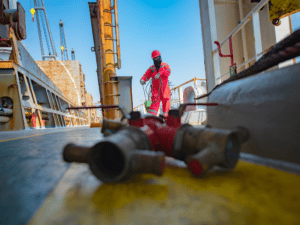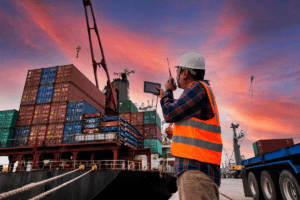According to the Occupational Safety & Health Administration (OSHA), the maritime industry is one of the most dangerous occupations in the United States. As a result, several acts are regulations are set into place in order to protect maritime workers from injuries and to promote safety. Unfortunately, a plethora of maritime accidents are a result of inadequate training. Per OSHA guidelines, employers have the responsibility to ensure all workers are trained properly before beginning any work. If employers fail to meet this obligation, seamen can file for damages under the Jones Act, Longshore Harbor and Workers’ Compensation Act (LHWCA), and general maritime law.

Examples of Inadequate Training and Accidents
The maritime industry is already a dangerous business for seamen, but many accidents and injuries can be easily prevented if workers are afforded proper occupational and safety training. The following is a few examples of crucial training techniques that should always be provided to anyone working in the maritime industry:
- Preventative measures training
- How to prevent repetitive use injuries
- Thorough training on how to operate machinery
- Training for emergency procedures
- Safety protection equipment training
- Safety inspection training
- Safety training according to each task performed

Although providing adequate training would help employers in the long run, the unfortunate fact is that many employers think of short-term, deadline goals, and forgo safety training in order to get the job done faster. For instance, a myriad of longshoremen across the nation have been severely injured and even killed by moving cranes. In many of these situations, the machinery operator was not properly trained on how to operate the equipment effectively while looking out for other workers. The damages incurred because of inadequate training injuries are much more expensive than simply training workers beforehand.
Typical accidents that occur because of inadequate training include:
- Falling from platforms
- Slipping, tripping, and falling on ships
- Machinery and equipment accidents
- Vessels capsizing due to overloading
- Falling overboard
- Conveyor belt accidents
- Injuries due to other untrained workers
Damages Covered Due to Inadequate Training Injuries
If you’ve been injured due to inadequate training, there are laws in place that protect you, as mentioned earlier. Common damages that can be recovered if you were injured on the job include:
- Punitive damages
- Emotional pain and trauma
- Physical pain and suffering
- Rehabilitation
- Dismemberment and/or disfigurement
- Lost wages (including present and future wages)
- Reduction in earning capacity due to injuries
- Extended maintenance and cure
As mentioned earlier, employers are legally obligated to ensure maritime workers have the proper safety training as well as a safe working environment. If these rights are violated, employers may be financially responsible for your injuries.
If You’ve Been Injured
It’s important to report your accident as soon as possible to your employer and to seek immediate medical treatment, even if you don’t feel you need it. This helps to establish proof that you were injured while on the job. However, aside from an accident report, you should never fill out any paperwork you are uncomfortable with. Consult legal representation before you sign anything that might reduce or limit your rights. Insurance companies that handle maritime claims are notorious for attempting to downplay injuries in order to reduce costs.
Fill out our contact form to learn more about rights and how we can help.